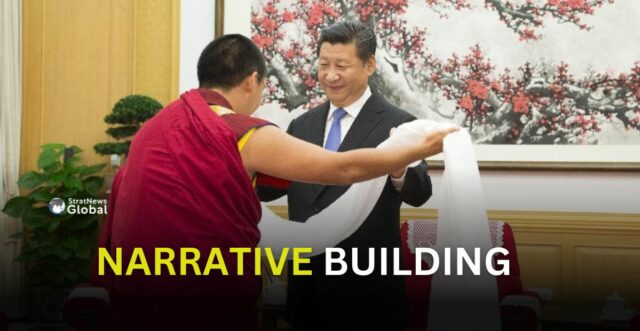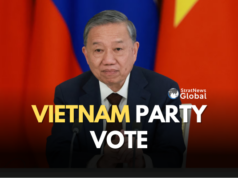Last week, for the first time in ten years, China’s President Xi Jinping received the Panchen Lama Gyaltsen Norbu in Beijing. Norbu is the monk the Chinese Communist Party handpicked to be the Panchen Lama, considered second only to the Dalai Lama. This was after disappearing the boy chosen by the Dalai Lama to be the Panchen Lama. He remains disappeared until today.
Why the ten year gap in meeting Norbu and why now?
Anybody looking for insight from China’s state-controlled media may have been disappointed. The official press release noted that Xi “directed” the Panchen Lama to “resolutely safeguard the unity of the motherland and the unity of the nation … advance the Sinicization of the religion … ” and facilitate the “modernisation of Tibet”.
The official media recorded Norbu’s response, that he would “bear in mind the earnest teachings of the General Secretary Xi Jinping… firmly support the leadership of the Chinese Communist Party” and so on.
Dr Sriparna Pathak, professor of China Studies at Jindal Global University, belives Beijing is engaged in what she describes as “narrative building”. Meaning, the Chinese are anxious to consolidate their case that they alone have the right to decide who the next Dalai Lama will be.
It means they need to publicly and otherwise step up efforts in that direction. Norbu’s meeting with Xi was one move in that consolidation and narrative building. Beijing may also be worried about what could happen on July 6th, in Dharmsala India, when the Dalai Lama turns 90.
It will be an occasion of celebration, but what if he announces his successor. In the past the Dalai Lama has hinted that his successor will be born in the “free world”, meaning not Tibet and certainly not China.
If a name is announced, it will directly challenge the Chinese Communist Party’s claim that it alone has the right to decide on the Dalai Lama’s successor. Therefore, the name of a probable candidate has to be kept ready.
The irony may not be lost on China’s top leaders: as an officially atheist state, it has no use for religion. But here, the party is meddling in the internal matters of an ancient faith, with no accretion of legitimacy or credibility. Norbu, for instance, is widely seen as lacking “spiritual legitimacy”. He was even denied entry into Nepal last year for a major Buddhist event.
China has long sought to elevate the Panchen Lama as a substitute for the Dalai Lama’s spiritual and political influence in Tibet, a strategy dating back to the Qing dynasty’s attempts to offer the 9th Panchen Lama the Dalai Lama’s title, offers he repeatedly refused.
The effort persisted through the 10th Panchen Lama, who initially cooperated with Beijing but later grew openly critical, submitting a 70,000-character petition in 1962 condemning Chinese repression in Tibet.
Despite decades of efforts, the Communist Party’s attempts to use the Panchen Lama to legitimize its control over Tibetan Buddhism have largely failed.
Xi’s face-to-face meeting with Gyaltsen Norbu is part ritual, part strategy, intended to enforce religious alignment with the party. But across Tibet and internationally, Norbu is seen with a big question mark over his head.





